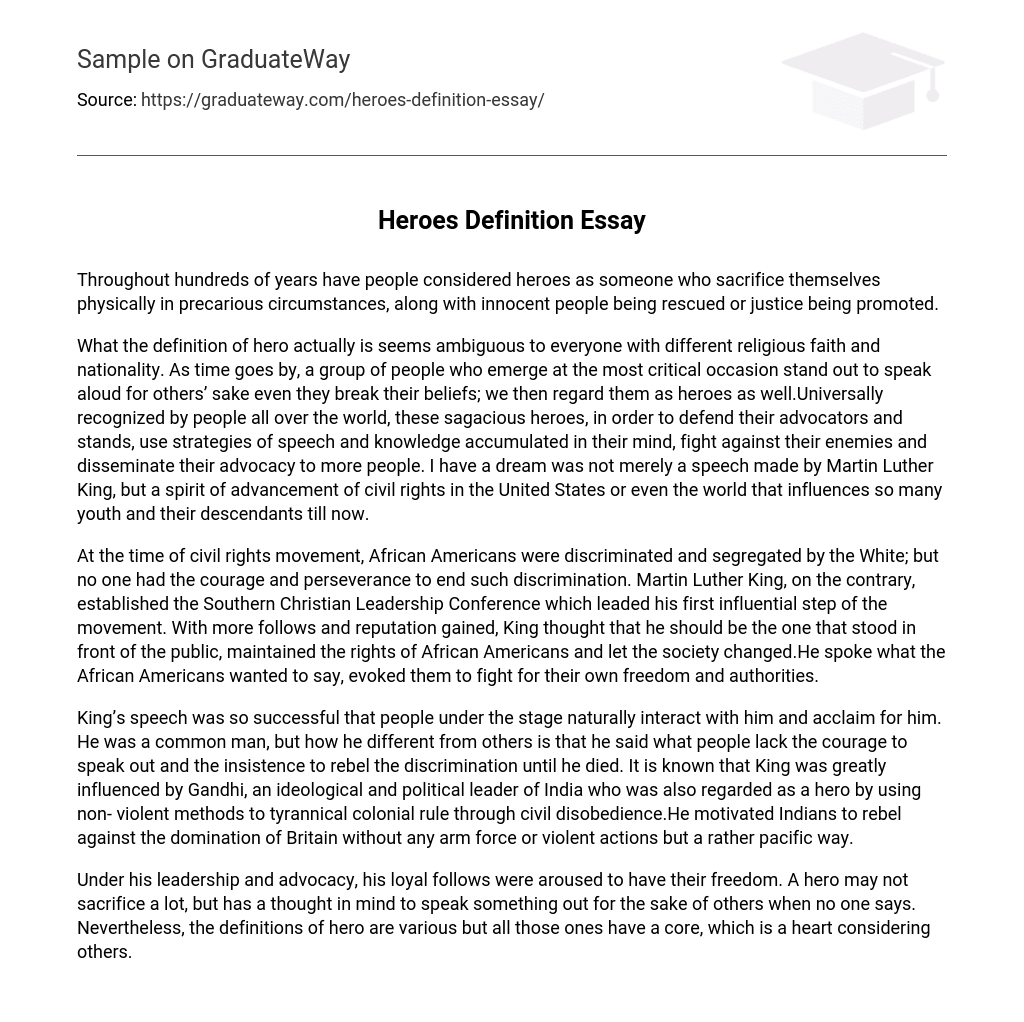Throughout history, there has been a prevalent belief that heroes are individuals who willingly endanger their lives in perilous circumstances to rescue innocent lives or advocate for justice.
The definition of a hero may vary among individuals with different religious beliefs and nationalities. However, there is a particular group that emerges during crucial times and fearlessly supports others, regardless of conflicting ideologies. These wise heroes are widely recognized and utilize their wisdom and communication skills to protect their followers and principles, confront adversaries, and disseminate their message to a wider audience. Martin Luther King’s “I have a dream” speech was not just a mere address; it encapsulated the core idea of promoting civil rights that has profoundly impacted numerous young people in the United States and worldwide.
During the civil rights movement, African Americans faced discrimination and segregation from White Americans. However, Martin Luther King boldly opposed this discrimination and took a significant step forward by establishing the Southern Christian Leadership Conference. As he gained more followers and recognition, King felt it was his duty to be at the forefront of public attention, advocating for the rights of African Americans and igniting transformative change in society. Fearlessly articulating the aspirations of African Americans, he motivated them to stand up for their freedom and rights.
The success of King’s speech resulted in natural interactions and praise from the audience. What made him unique was his capacity to discuss topics that others were afraid to address and his unwavering determination to fight against discrimination until he died. It is common knowledge that King was greatly influenced by Gandhi, a respected ideological and political leader in India who was celebrated as a hero for using non-violent methods to resist oppressive colonial rule through civil disobedience. Inspired by Gandhi, King urged Indians to peacefully rebel against British rule without resorting to weapons or violence.
With his leadership and advocacy, he inspired his devoted followers to pursue freedom. A hero may not necessarily make significant sacrifices, but they always exhibit the bravery to advocate for others when no one else does. While the definitions of a hero may vary, they all have one common characteristic: a compassionate heart that values the welfare of others.





